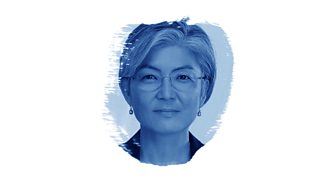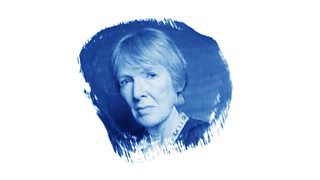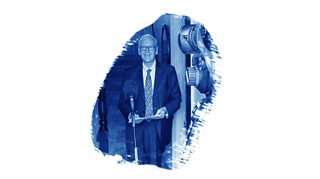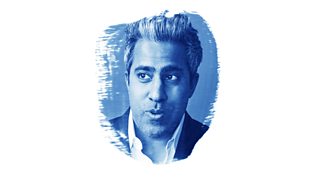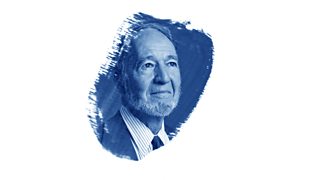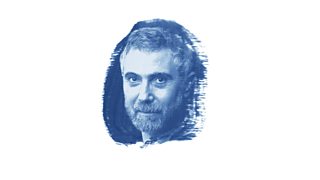How will we rethink politics in the wake of a pandemic?
For months now, our lifestyles have been punctuated by changing government guidelines. We sit at our phones, radios and televisions awaiting updates about how often we can leave our houses, whether we can travel to work, how many friends and family we can see at one time. Debates have been sparked between those who think lockdown restrictions have been too strict and those who think the government’s actions have been too little, too late.
Whichever way people’s attitudes fall, they seem to be unified in wanting to hold their government accountable for its actions, or lack thereof, when it comes to countering the virus. Could this time lead to a more politically engaged public in future?
As part of Rethink, a 大象传媒 series of audio essays pondering on the potential of life after lockdown, these four essayists are rethinking politics post-pandemic.
Rethinking Accountability 鈥� Kang Kyung-wha

In her audio essay for Rethink, South Korea’s foreign minister Kang Kyung-wha explains why trust is so vital in times of crisis, and what this means when it comes to holding governments accountable for their actions.
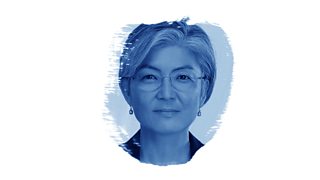
Kang asserts that “full disclosure about what a government is doing or not doing in the midst of a crisis may be difficult, but it is all the more critical, for this is the only way to win the public’s trust, which is the most important ingredient in effective crisis management.”
She explains that every day in South Korea, the government has shared their knowledge and actions in addressing the virus, as well as acknowledging what they don’t know or aren’t doing. As well as remaining accountable to their people, Kang suggests that going forward, governments must be transparent with one another too.
In attempting to contain the virus, she has found that governments have themselves become insular, losing their sense of solidarity. To address this global crisis, and the societal issues and inequalities it has brought to the fore, governments must in future act in a globally-minded way.
Governments must in future act in a globally-minded way.Kang Kyung-wha
Kang concludes that going forward “democracies must face up to these with honesty and humility, and join forces for the dignity and safety of all of humanity. Only by doing so will we be stronger and better prepared to deal with today’s and tomorrow’s challenges.”
-
![]()
Kang Kyung-wha: Rethinking Accountability
South Korea's Foreign Minister discusses why trust is essential in times of crisis.
Rethinking Cooperation 鈥� Margaret MacMillan
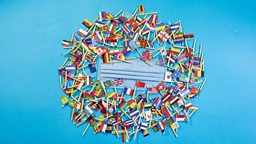
Historian Margaret MacMillan also believes in the importance of powers working together. Our interconnection and interdependency with other nations, largely established through agreements made in the wake of World War Two, has engendered a sense of collective responsibility. Our interconnected world is managed through organisations such as the and the .
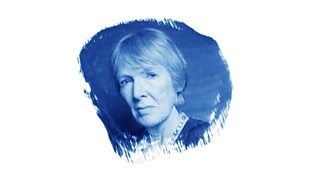
Yet while we take on responsibility for one another through humanitarian aid and peacekeeping measures, Margaret suggests that our interconnectivity also allows for the exchange of darker or more sinister links with other nations such as “crime, conspiracy theories, cruel ideologies or cyber mischief-making.” But these issues, like COVID-19, can be dealt with by collective action.
Problems occur when nations act in an insular manner, hoarding medication and equipment or withholding vital information and statistics. A global crisis requires a global response.
A global crisis requires a global response.Margaret MacMillan
In future, says Margaret, whatever the next crisis we face may be, we cannot afford to turn inwards. “We must not lose the sense we have gained so painfully that we inhabit the same world. We must not forget the fear and sense of urgency with which we mobilised ourselves to deal with COVID-19. We are going to need them.”
-
![]()
Margaret MacMillan: Rethinking International Cooperation
Historian MacMillan explains how our interdependence is essential to our condition.
Rethinking Democracy 鈥� Lord Peter Hennessy
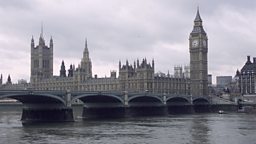
Rethinking Democracy 鈥� Lord Peter Hennessy
Reflecting on the actions of our past, both successes and failures, can help guide our responses to comparable situations.
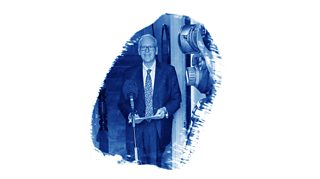
Yet trying to compare such disparate events as World War Two and the COVID-19 crisis, as many have done, is not entirely helpful explains historian Lord Peter Hennessy.
Yet there is one take away from the war we can afford: the power of the ‘never again’.
In 1942, this took the form of a report by William Beveridge which identified ‘five giants’ which must be beaten simultaneously to overcome deprivation: ‘want’, ‘ignorance’, ‘idleness’, ‘squalor’ and ‘disease’. This ground-breaking report paved the way for the welfare state.
Peter proposes five new priorities which could form a post-Corona banner that we as a nation could rally around as a foundation for the future.
These are: social care, social housing, technical education, combatting climate change, and preparing the nation for the impact of Artificial Intelligence on society.
-
![]()
Jonathan Sumption: Rethinking The State
Author Sumption questions the freedoms we have given up during the pandemic.
Peter thinks this could profoundly impact our post-pandemic lives for the better.
The early 2020s could be one of the most creative and productive patches of our history, and a worthy memorial to the Covid fallen.Lord Peter Hennessy
He says “if politicians could pick up this new consensus and run with it, finding the right tone and pitch of language in which to express it, the early 2020s could be one of the most creative and productive patches of our history, and a worthy memorial to the Covid fallen."
While it has taken the outbreak of a deadly pandemic to do so, Peter is confident that we have rediscovered our shared duty of care.
-
![]()
Lord Peter Hennessy: Rethinking Democracy
The historian Peter Hennessy asks what we might learn from 1945, when an exhausted but victorious Britain launched a new social contract.
Rethinking Winners 鈥� Brian Eno
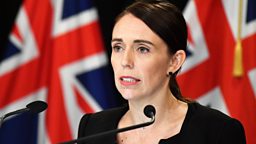
“If we have learned one thing from the Coronavirus experience it’s that a certain style of government and leadership, a style that’s dominated the last few years, isn’t going to be of any use to us at all in the 21st century.” The style of leadership to which musician Brian Eno is referring is one defined by “macho, media savvy, authoritarian leaders whose primary talent is self-promotion.”

Brian explains that such leaders manufacture threats through the scapegoating of others, creating a false emergency from which to save their people. When faced with a genuine emergency, such as the current pandemic, they disregard scientific evidence if it does not fit their agenda.
“What was needed was preparation, expertise, cooperation and good data. All complete mysteries to the macho mind.” says Brian. He notes that countries with female leaders such as Germany, New Zealand and Taiwan have had considerably better outcomes in the pandemic.
The continuation of a macho style of leadership with self-preservation and promotion at its core, says Brian, results in a handful of winners thriving in a “billionaires’ utopia while the rest of us collapse in a fireball.”
He suggests that the alternative, a society which values all its different intelligences and engages everybody rather than excluding most, is our only option if we are to address climate change and future pandemics.
-
![]()
Woman's Hour: Rethink 鈥� The harm of macho leadership
Do we need to rethink what we want from our leaders?
If society currently promotes division, then we must start affording greater worth to cooperation and inclusion.
A world with a few winners and a lot of losers isn鈥檛 a tenable world.Brian Eno
“The more people have an investment in society, the more they’ll want to nurture and improve it … a world with a few winners and a lot of losers isn’t a tenable world.”
-
![]()
Brian Eno: Rethinking The Winners
Musician Eno investigates the kinds of leadership available to us.
Listen to other Rethink essays on politics...
-
![]()
Anand Giridharadas: Rethinking Capitalism
Author Giridharadas asks if now is the moment to rethink everything.
-
![]()
George Soros: Rethinking Debt
Philanthropist and investor Soros puts forwards some radical economic proposals.
-
![]()
Jared Diamond: Rethinking A Global Response
American geographer and author Diamond asks if democracies are agile enough to do what's needed.
-
![]()
Paul Krugman: Rethinking Solidarity
Economist Krugman wants us to recognise our inescapable inter-dependence.
Rethink on Radio 4
-
![]()
Is the coronavirus crisis a chance to reset the world?
Amol Rajan looks back at times when crises have led to profound changes in society.
-
![]()
How five famous figures are rethinking life after lockdown
From the environment to education, here are five ways we might rethink life after lockdown
-
![]()
How the pandemic has made us rethink our bodies
How lockdown made us focus both on what our bodies wanted, and what they needed.
-
![]()
Why we need to Rethink just about everything...
Influential thinkers will suggest post-Covid-19 opportunities to effect lasting change.
